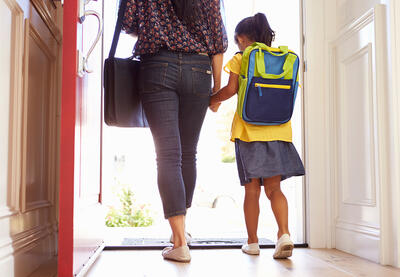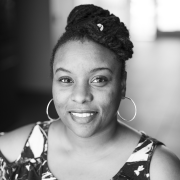It’s back-to-school time again, but this year parents and other caregivers have a lot more to be concerned about, including the numerous implications of an ongoing pandemic. The last two school years have been rocky at best, heartbreaking at worst. We’ve witnessed how COVID-19 has affected people we know, including loved ones and school staff. We don’t take for granted that this pandemic created or exacerbated struggles for families and whole communities. It magnified health disparities and other disparities that disproportionately affect Black, Indigenous and Latinx people.
Explosive school board meetings with arguments about what content can and cannot be taught in classrooms have compounded already fraught circumstances. Fierce debates about mask-wearing and vaccines have added even more layers to the discord. These last 18 months have meant a disruption in learning, which includes issues with virtual learning, worries about academic loss, inconvenient work schedules for caregivers and educators, and heightened stress and anxiety for everyone.
Most parents surveyed by the National PTA, especially parents of color, feel less confident about their children returning to in-person learning this fall than before. We empathize with what parents and other caregivers are experiencing, as several Learning for Justice staff members are either parents, former educators or both. For schools that returned to in-person learning in August, we’ve already seen some shut down due to COVID-19 exposure. And we acknowledge the stress induced by the uncertainty of how this new school year will pan out.
We must never take for granted the effect these disruptions have had and will continue to have on some children’s lives—and those of their caregivers. We can’t underestimate the possible trauma and exhaustion young people have experienced from isolation, witnessing loss of life, uprisings and police violence, and restriction from the social interactions that can make school engaging and interesting.
Yet, amidst all the upheaval, the world has not truly stopped to reassess how we better take care of each other—how we find stillness so that we can reimagine ways to create a safer, more just society.
Through this turmoil, Learning for Justice has been listening, reflecting and reimagining how we should respond to the needs of students, educators and caregivers.
While the road ahead might be rough, we will get through this together. Now is the time to emphasize the importance of community care—taking care of our children as we simultaneously combat oppressive systems that harm us all.
The Bottom Line
The good news is that caregivers and their respective communities have power to mitigate some of these concerns. We’ve seen school communities rally in support of activists in the beginning of the pandemic. And we’ve noted how students, parents and other caregivers have jumped into action to ensure the safety of their children.
For example, parents are advocating for mask mandates in communities that have widespread COVID-19 infections. Caregivers are fighting to ensure students with disabilities get the help they need to navigate this new way of learning as the pandemic rages on. And we’ve witnessed students making their perspectives known on the mask issue.
We will never lose focus on what matters most—the children. We’ll continue to uplift resources that help support students’ mental and emotional health, and we’ll also be more intentional about engaging with caregivers and providing practical resources for them.
Things to Ponder
In the past, we’ve given tips to educators as students headed back to school. We hope that these tips will be useful to caregivers as you send your students back to the classroom this year—whether in person or remotely.
1. Give yourself—and your child—some grace.
It’s OK not to have it all together. It’s OK if life feels too messy right now. And it’s OK if you feel sad, anxious, stressed or exhausted. Allow yourself time to rest, reflect and release.
2. Know your students’ rights.
Review local policies and raise the alarm when the school environment appears unsafe. Ensure that your student’s school complies with state- and federal-level protections and follows Centers for Disease Control and Prevention guidelines for COVID-19. In addition, see LFJ’s recommended best practices for inclusive learning environments, and push back against rules that aren’t inclusive of all students.
3. Realize your power.
Activist and scholar Angela Davis famously said, “I am no longer accepting the things I cannot change. I am changing the things I cannot accept.” Advocacy begins by realizing your power.
4. Enlist the help of community.
Find support with other parents, school liaisons and local activist groups. You’d be surprised by how many other people share your concerns and can contribute a skill or resource that might help tackle an issue. Rather than returning to “normal,” use this challenging, complex time and space to reimagine how we move toward a safer, more just world.

